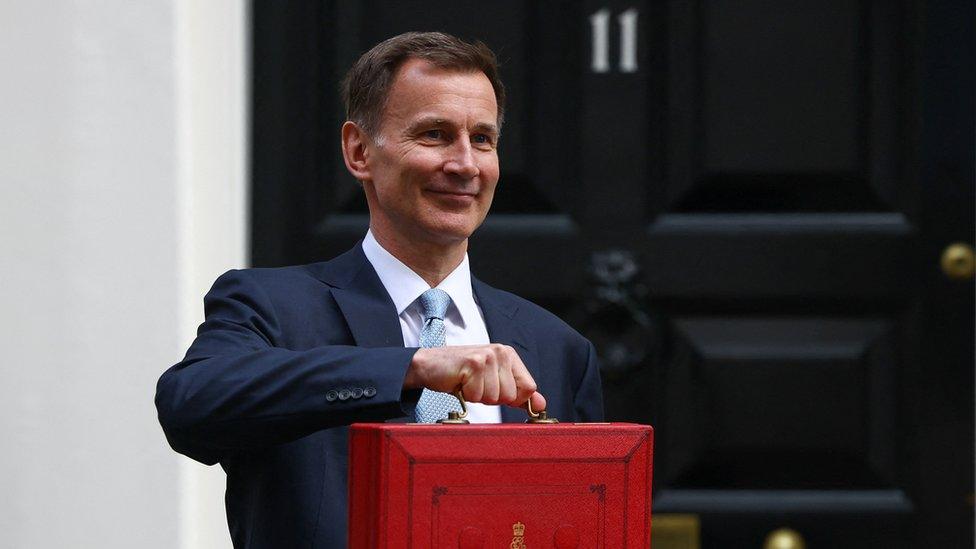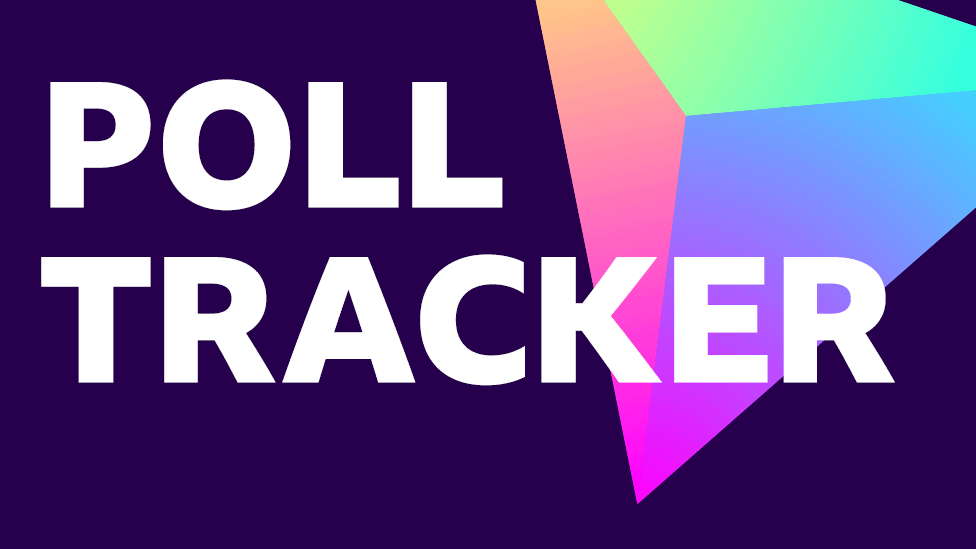Budget summary: Key points from Jeremy Hunt's speech
- Published
- comments

Jeremy Hunt posed with his red box for the traditional photo-op in Downing Street earlier
A 2p cut to National Insurance, a new tax on vaping and an increase to the salary threshold for claiming child benefit.
These were just some of the measures announced by Jeremy Hunt in his Budget on Wednesday. But what does it mean for you?
It was the last scheduled Budget before the next general election, which is expected to take place later this year.
Here is a summary of the main announcements.

Taxation

National Insurance, a payroll tax, cut by 2p in the pound for employees and the self-employed
The salary thresholds at which people start paying income tax and national insurance remain frozen - meaning people will pay more tax as their incomes rise, a process called fiscal drag.
Non-dom tax regime, for UK residents whose permanent home is overseas, to be replaced with new rules from April 2025
£5,000 UK ISA tax allowance for savers investing in "UK-focused" shares - to be set up following a consultation

Benefits and income support

Full child benefits to be paid to households where highest-earning parent earns up to £60,000 - the current limit is £50,000
Partial child benefit to be paid where highest earner earns up to £80,000
Longer repayment period for people on benefits taking out emergency budgeting loans from the government
Government fund for people struggling with cost of living pressures to continue for another six months
£90 admin fee to obtain a debt relief order scrapped

Cigarettes, vapes and alcohol

Freeze on alcohol duty, which had been due to end in August, to continue until February 2025
New tax on vaping products from October 2026, linked to the levels of nicotine
Tobacco duty to go up £2.00 per 100 cigarettes at same time, to ensure vaping remains cheaper

Transport and energy

Fuel duty frozen again, with the 5p cut in fuel duty on petrol and diesel, due to end later this month, kept for another year
"Windfall" tax on the profits of energy firms, which had been scheduled to end in March 2028, extended until 2029
Air passenger duty, the tax paid on flights, to go up for business class tickets
£160m deal for UK government to purchase site of planned Wylfa nuclear site in north Wales
A further £120m for a government fund that invests in green energy projects

Housing

Higher rate of tax paid on profits from selling property cut from 28% to 24%
Tax breaks for owners of holiday let properties scrapped
Stamp duty tax break when purchasing multiple properties in England or Northern Ireland to end in June

Public debt, inflation and the economy

Office for Budget Responsibility predicts UK economy to grow by 0.8% this year and 1.9% next year
Growth of 2% predicted for 2026, with 1.8% in 2027 and 1.7% in 2028
UK's inflation rate forecast to fall below 2% target by the end of June, falling to 1.5% next year
Public debt, excluding Bank of England debt, forecast to be 91.7% of GDP this year, rising to 92.8% next year
Overall day-to-day government spending to grow by 1% in real terms over next five years
NHS budget to go up £2.5bn next year; the service will also get £3.4bn up to 2030 to improve productivity

Business and investment

Threshold at which small businesses must register to pay VAT raised from £85,000 to £90,000 from April
Covid-era government loan scheme for small businesses extended until March 2026
Tax reliefs for touring and orchestral productions, which had to been due to end in March 2025, made permanent

Other measures
Nearly £570m for devolved governments in Scotland, Wales and Northern Ireland, to reflect increases in spending in England
£1m for a memorial to honour Muslims who fought for Britain during World War One and Two
A new tax credit for independent UK films with a budget of less than £15m
- Published3 July 2024

